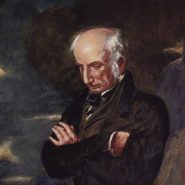Daffodils (I Wandered Lonely as a Cloud)
A portable sunrise: Wordsworth’s daffodils show how remembered delight restores the heart in solitude.
The Solitary Reaper
A singer in a field teaches Wordsworth an ethics of listening — mystery honored, music carried inward as lasting solace.
Love’s Philosophy
Shelley’s playful persuasion argues that nature itself mingles and kisses — so should lovers, by a gentle law divine.
When We Two Parted
A restrained lyric of secrecy and betrayal, “When We Two Parted” turns grief into judgment with tolling simplicity.
So, We’ll Go No More a Roving
A tender farewell to excess, Byron’s lyric accepts time’s limits so that love may last.
Going for Water
A twilight errand becomes enchantment in “Going for Water,” where nature and imagination coexist in quiet wonder.
The Vantage Point
From solitude, Frost’s “The Vantage Point” looks upon life and death, then turns to the living earth for quiet belonging.
Revelation
In “Revelation,” Frost explores our need to hide and to be found, turning speech itself into a form of revelation.
A Late Walk
A late-autumn walk ends with a single faded aster “to carry again to you,” turning loss into gift.
Into My Own
A youthful vow of independence, “Into My Own” imagines walking into deep woods to become more fully oneself.
Ghost House
A ruined homestead becomes companionable in “Ghost House,” where nature and memory reclaim a life quietly.
My November Guest
In “My November Guest,” a personified Sorrow teaches the speaker to love the austere beauty of late autumn.
